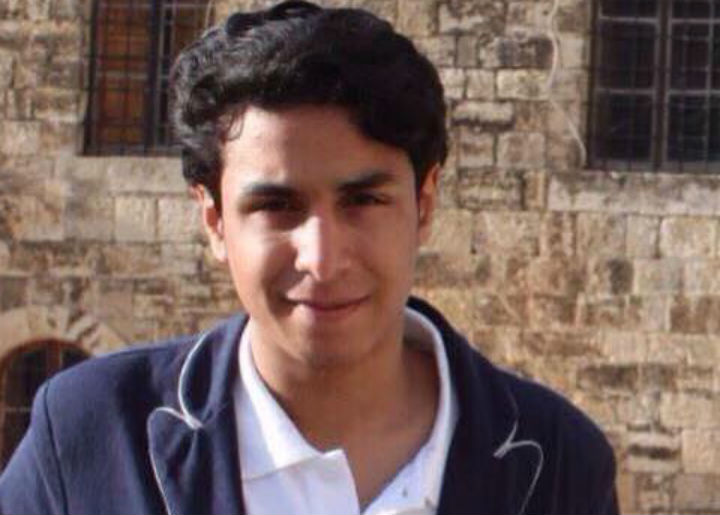A group of UN human rights experts has joined international calls for the Saudi government to stop the planned beheading of a 21-year-old man, a demand that comes on the heels of Saudi Arabia taking on a key role at the UN Human Rights Council (UNHRC).

Ali Mohammed al-Nimr was a 17-year-old high school student in Qatif, a Shiite Muslim-populated town in Saudi Arabia’s Eastern Province, when he was arrested during Arab Spring-inspired protests in 2012.
READ MORE: Supporters of jailed Saudi blogger start foundation to promote free speech
According to a state-run media report (in Arabic), he was accused of taking part in anti-government demonstrations, inciting others to join in protests by taking photos with his mobile phone, burglary, attacking security patrols and belonging to a terror group.
Al-Nimr was sentenced in May to be beheaded and crucified (put on public display). His last attempt to appeal his conviction was turned down this week and his punishment could be carried out at any time, RFI reported.
Amnesty International claims al-Nimr was not given access to a lawyer and was “allegedly tortured and otherwise ill-treated ” in order to get a confession out of him.
There is also a claim Saudi Arabia is punishing him as “revenge against his uncle,” Shieikh Nimr al-Nimr, CNN quoted a “source close to the family” saying.
READ MORE: Billionaire Saudi Prince vows to donate $32 billion in coming years
Shiekh Nimr was also arrested in 2012 and sentenced to death for “disobeying and breaking allegiance to the ruler” and “calling to overthrow the regime,” according to Amnesty International.
“The (Saudi) government doesn’t want anyone to ask for their rights or speak politics. Sheikh Nimr is different because he spoke while he was in the country, not like others who go abroad and speak from London or the U.S,” said the unnamed source, who spoke to CNN on the condition of anonymity out of “fear of arrest.”
It’s not known when the execution is set to take place, as his trial and appeal were shrouded in secrecy.
“It could be that his papers have already been signed by the king for the execution to go ahead. We have no way of knowing what is happening… his family is not informed, nobody is,” Zena Esia, a research assistant with the European Saudi Organisation for Human Rights, told RFI.
“There’s a lot of pressure now from the international community, whether they listen is a different story.”
Three independent UN special rapporteurs, through the Office of the High Commission of Human Rights, are now demanding “Saudi authorities ensure a fair retrial” and call off his execution and those of at least two other people arrested as children during the 2012 protests.
“We urge the Saudi authorities to establish a moratorium on the use of the death penalty, halt executions of persons convicted who were children at the time of the offence, and ensure a prompt and impartial investigation into all alleged acts of torture,” the three human rights experts wrote in a statement released Tuesday.
Saudi Arabia has one of the highest numbers of executions in the world and has already executed more people so far this year than in all of 2014 — at least 134 this year compared to 87 executions last year.
READ MORE: Saudi King Abdullah: ‘Proponent of peace’? Human rights abuser? Both?
Their condemnation follows a report that Saudi Arabia’s envoy to UNHCR, Faisal bin Hassan Trad, had been appointed to chair the commission’s Consultative Group in June and selected to lead the panel’s new session that got underway on Monday.
According to the monitoring group UN Watch, the panel “has the power to select applicants from around the world for more than 77 positions dealing with country-specific and thematic human rights mandates.”
UNHRC is a “subsidiary body of the General Assembly” that is “accountable to the full membership of the United Nations.”
“The UN often describes these experts as the ‘crown jewels’ of its Human Rights Council, yet the world body only undermines their legitimacy by picking a fundamentalist theocracy that oppresses women and minorities to preside over the experts’ appointment,” executive director Hillel Neuer wrote on in a statement on the UN Watch website.




Comments